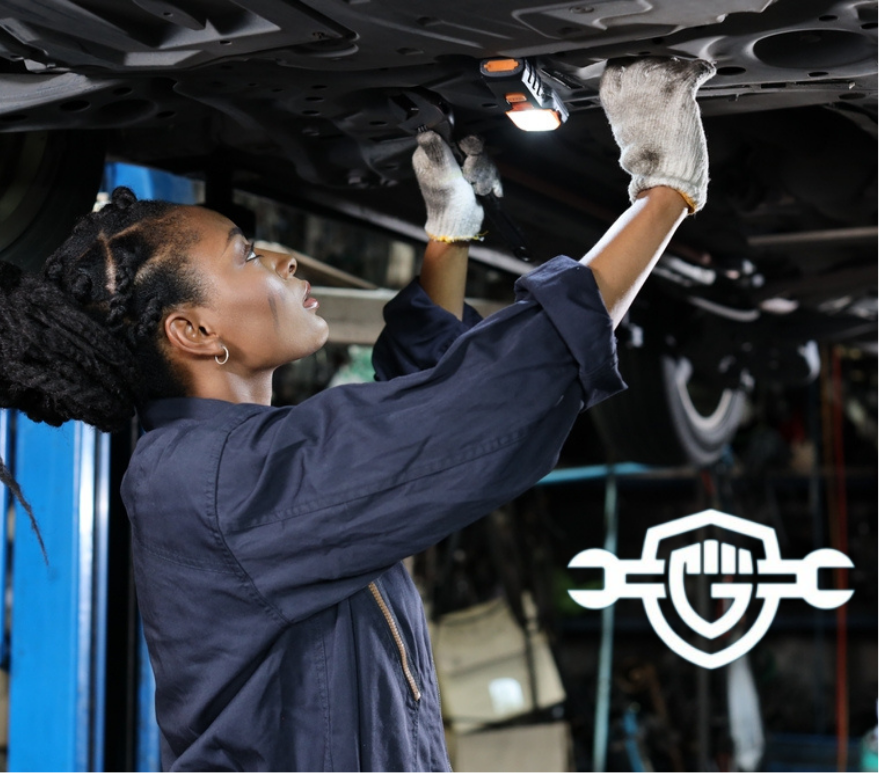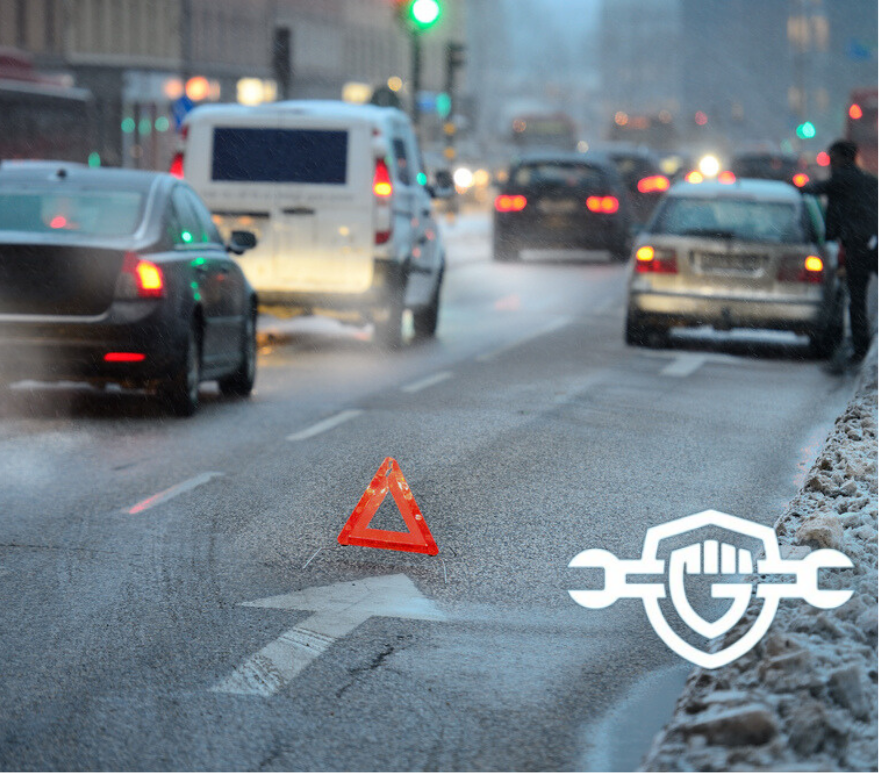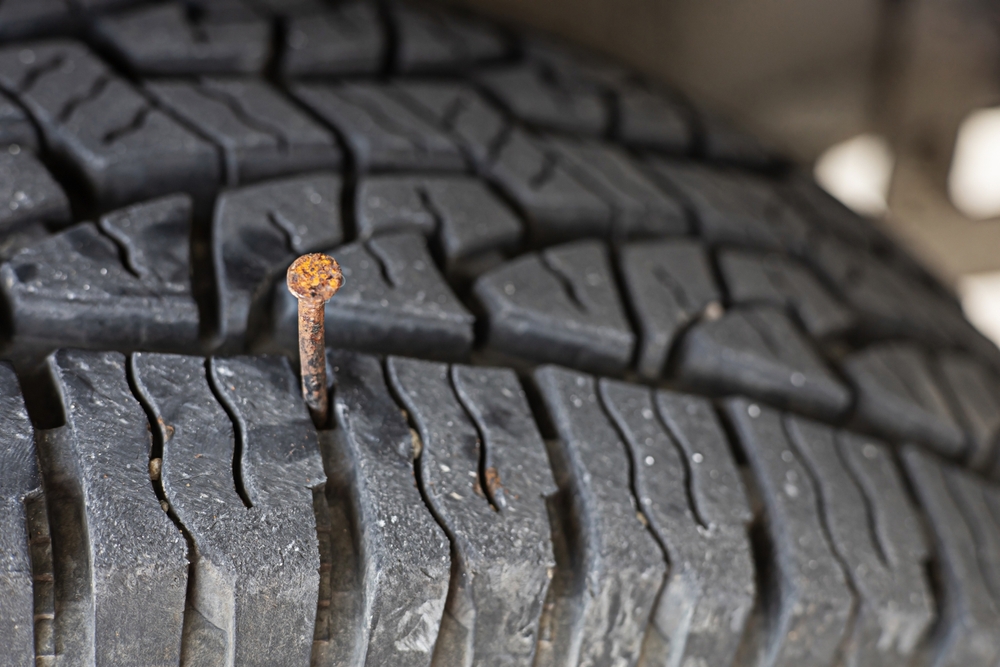Why Your Brakes Squeal, Grind, or Click
Published on
September 16, 2025

Brakes that make noise are trying to tell you something. A squeal, grind, or click isn’t part of normal driving, and the longer it’s ignored, the more likely it is to lead to trouble. Some sounds are early warnings. Others mean it’s time to stop driving and call for help. Catching the issue early can make all the difference. Your ears usually notice the problem before your dashboard does.
What That High-Pitched Squeal Is Really Telling You
A high-pitched squeal when you hit the brakes is usually an early warning. Most brake pads have a small metal tab built in called a wear indicator. When the pads get low, that tab scrapes the rotor and makes a sharp squealing sound. It’s not just noise. It’s a built-in alert that it’s time for new pads soon.
You might hear it consistently when you brake or just at low speeds. If it goes away after the first few stops, it might still be worth keeping an eye on, but don’t count on it disappearing for good. The squeal is meant to get your attention before things wear down far enough to do damage.
This kind of sound is your chance to stay ahead of a problem, not a sign that something’s already broken. When caught early, replacing pads is a simple job. Waiting too long can lead to bigger repairs. If the squealing sticks around, it’s time to get it checked out before grinding takes over.
Grinding Noises That Should Never Be Ignored
Grinding brakes usually mean something is already starting to break down. The sound is often deep and harsh, and it might come with a rough feeling in the brake pedal. In many cases, the pads have worn down completely, and now the metal backing plate is rubbing against the rotor. That kind of contact creates heat, wears parts unevenly, and takes stopping power away fast.
You might also notice the car pulling to one side, shaking when you stop, or taking longer than usual to slow down. These are signs that your braking system is working harder than it should, and that more than just the pads might be wearing out.
Grinding noises to never ignore:
- A scraping or growling sound when braking
- A brake pedal that feels rough or vibrates
- The car pulls left or right while stopping
- Brake response that feels slow or weak
Grinding doesn’t improve over time. Once it starts, other parts are at risk, including the rotors and calipers. Getting it checked quickly gives you the best shot at keeping repairs simple and your car safe on the road.
Clicks Clunks and the Case of the Mystery Brake Noise
Clicking or clunking when you press the brakes usually means something isn’t sitting right. It could be a loose brake pad, a missing anti-rattle clip, or worn hardware that’s letting parts shift around. These noises often show up at low speeds or when backing up, and they tend to come and go, which makes them easy to ignore.
Sometimes the sound comes from outside the brake system. Worn suspension components or steering parts can shift under pressure and make similar noises when stopping. In other cases, the rotor may not be sitting flush against the hub, which creates movement and sound during braking.
Even if the brakes feel fine, clicking and clunking noises are worth checking out. Movement in the braking system means parts aren’t secure, and that can lead to uneven wear, weaker stopping power, or bigger issues later on. A quick inspection can help catch loose or worn parts before they start affecting how your car drives or stops.
When to Get It Checked and What Happens If You Wait
If your brakes are making noise more than once or twice, it’s time to have someone take a look. Sounds that keep showing up, get louder over time, or happen every time you stop are signs that something isn’t right. Brake problems usually don’t start off severe. They build gradually, and those early noises are your warning to act before things get worse.
Waiting too long can lead to bigger and expensive repairs. What starts as a worn pad can turn into damaged rotors. Loose hardware can lead to uneven wear or caliper issues. In some cases, even brake fluid can be affected if heat and wear begin to spread through the system. Most of these problems are easy to catch early, but once damage spreads, the repair list grows.
Signs your brakes need attention:
- Brake noise that gets worse day by day
- A new sound that keeps returning
- More distance is needed to come to a stop
- A slight burning smell near the wheels
- A brake warning light that flickers or stays on
A quick inspection at GreatWater 360 Auto Care can catch the problem before it leads to bigger issues, longer repairs, or an unexpected bill.


